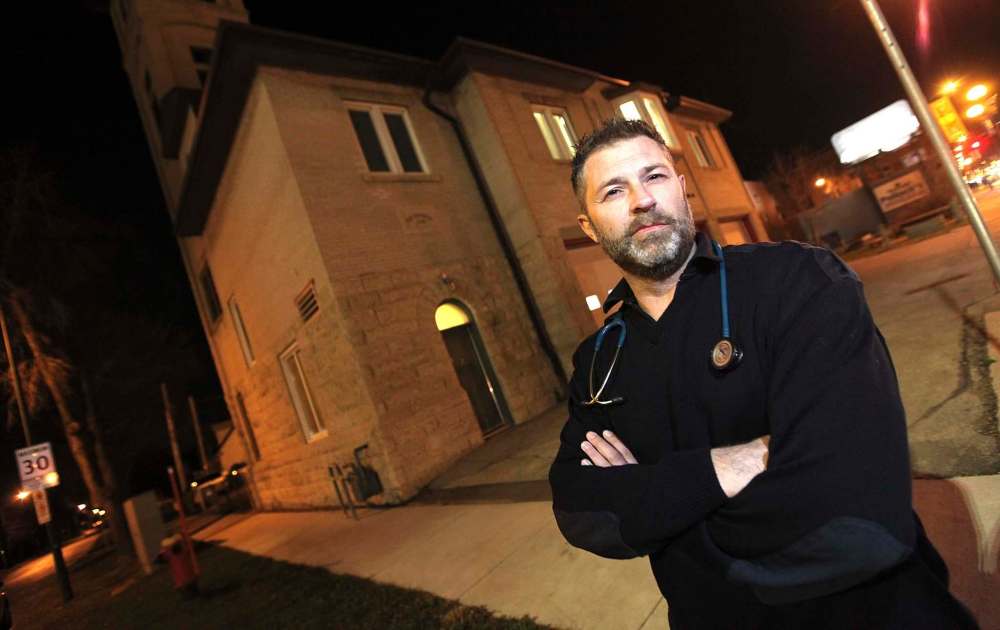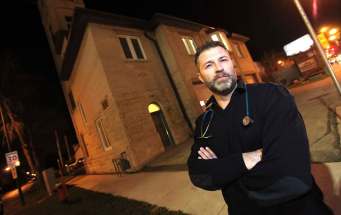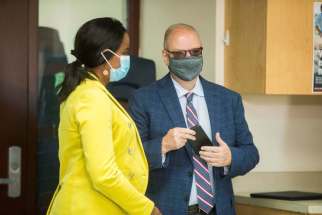Calling 911 on the city’s ambulance service Desperate times call for innovative solutions, paramedic says
Read this article for free:
or
Already have an account? Log in here »
To continue reading, please subscribe:
Monthly Digital Subscription
$0 for the first 4 weeks*
- Enjoy unlimited reading on winnipegfreepress.com
- Read the E-Edition, our digital replica newspaper
- Access News Break, our award-winning app
- Play interactive puzzles
*No charge for 4 weeks then price increases to the regular rate of $19.00 plus GST every four weeks. Offer available to new and qualified returning subscribers only. Cancel any time.
Monthly Digital Subscription
$4.75/week*
- Enjoy unlimited reading on winnipegfreepress.com
- Read the E-Edition, our digital replica newspaper
- Access News Break, our award-winning app
- Play interactive puzzles
*Billed as $19 plus GST every four weeks. Cancel any time.
To continue reading, please subscribe:
Add Free Press access to your Brandon Sun subscription for only an additional
$1 for the first 4 weeks*
*Your next subscription payment will increase by $1.00 and you will be charged $16.99 plus GST for four weeks. After four weeks, your payment will increase to $23.99 plus GST every four weeks.
Read unlimited articles for free today:
or
Already have an account? Log in here »
Hey there, time traveller!
This article was published 21/09/2021 (1541 days ago), so information in it may no longer be current.
When Ryan Woiden begins his shift as a paramedic, he expects a long, hectic day thanks to a staffing shortage and overwhelmed hospitals.
“You come into work knowing there’s going to be (ambulances) shut down because there’s just people that need a break mentally or physically,” said the 21-year veteran of the Winnipeg Fire Paramedic Service.
Woiden is a spare paramedic and the president of MGEU Local 911, the Winnipeg paramedics union.
“I’ve worked when there are six ambulances shut down, which is absolutely dangerous,” he said.

Before the pandemic, Woiden would use the first 20 minutes of his shift to check his truck and equipment. Now, there’s little time for that because “that call is coming right away,” he said.
Another problem is the incidence in which calls are redirected. Every shift, one hospital or another may not be able to accept ambulance patients to its emergency room because it’s full, Woiden said.
“(Then), we have to take our patients to hospitals that may be inappropriate for their care,” he said. “We feel like we’re chasing our tails… I take a patient to an ER that I know is going to be moved later on, possibly within a few hours.”
Dispatchers usually tell paramedics which hospitals are closed before they leave a scene with a patient. However, there are times when they arrive at a hospital, only to be diverted to another one.
“You come into work knowing there’s going to be (ambulances) shut down because there’s just people that need a break mentally or physically.”
– Ryan Woiden, 21-year veteran of the Winnipeg Fire Paramedic Service
“That has increased during the pandemic,” Woiden said. “That’s very scary as a paramedic, because you’ve got a patient who needs to be in that ER, and they’re getting turned away at the door.”
The lack of front-line staff means paramedics don’t have time to attend anti-violence training — which they had pushed for. They rarely have time for a break during 12-hour shifts, which can be extended for hours, Woiden said.
“Our people are getting beat up, and they’re taking time off work. We can’t even get them the training that would help them in those situations,” he said.
There are 667 front-line paramedics, according to the WFPS. Sixty-four ambulance paramedics joined during the pandemic.
“During July and August, (the) WFPS saw a higher number of unfilled shifts than ever before, resulting in ambulances being placed off-duty,” said Erin Madden, the WFPS spokesperson, in a written statement.
She added it’s a result of many factors, including paramedics working elsewhere and stress injuries.
City councillors have called for provincial funding for 10 additional ambulances. That’s not a solution, Woiden said. Nor is adding emergency rooms. Even when the city had three more, paramedics would wait with patients for hours in hospital hallways, Woiden said.
“(We need to) change the way we respond, how we respond, and where we can take people,” he said.
The WFPS began EPIC 9, a pilot phone triage program in which advanced care paramedics assess patients after they call 911, in response to high call volumes. Some low-acuity calls result in hospital transports via taxi or other alternative.
“Our people are getting beat up, and they’re taking time off work. We can’t even get them the training that would help them in those situations.”
– Ryan Woiden
From May 25 until Sept. 9, EPIC 9 managed 493 incidents that didn’t require an emergency response; 263 patients took a taxi to hospital instead of an ambulance. Paramedics assessed 1,508 calls during that time frame.
Another pandemic-era go-to is sending highly equipped paramedics in SUVs to people’s homes. Responders care for patients on the spot and direct them to places for further help, if needed.
Paramedics have travelled by SUV and provided care at homes through the WFPS’s Emergency Paramedic in the Community (EPIC) program for over a decade. There are currently two vehicles.
“A lot of our calls don’t need to be transported to an ER,” Woiden said. “I have no idea why these (initiatives) wouldn’t be expanded further.”
Shared Health has asked the WFPS to staff two more EPIC units solely for COVID-19 response plans. One is on the road, while another is pending as staff get trained, Madden wrote.
The City of Winnipeg, through the WFPS, provides ambulance services to Winnipeggers. The province funds the service. However, the two have been without a deal since 2016.
“As part of the negotiations with Shared Health, the WFPS has requested the provision of increased resources, including net new transport ambulances and staff to better position the department to respond to the current level of call volumes,” she wrote.
Woiden is calling for a Shared Health deal filled with innovative solutions.
“We are encouraged that there are councillors, like Kevin Klein, asking the why,” he said.
Klein asked the city’s protection committee for an independent review of ambulance wait times earlier this month. The committee did not move forward with the review process.
Shared Health, a provincial body, said the province and city are negotiating a long-term EMS service agreement.
“Contract negotiations progress at different speeds — and seldom as fast as either party would like,” a spokesperson for Shared Health said in a written statement.
A number of factors, including the pandemic, have affected negotiations, it said.
The City of Winnipeg has sent a draft agreement to Shared Health and is waiting for a response, Madden wrote.
gabrielle.piche@freepress.mb.ca

Gabby is a big fan of people, writing and learning. She graduated from Red River College’s Creative Communications program in the spring of 2020.
Our newsroom depends on a growing audience of readers to power our journalism. If you are not a paid reader, please consider becoming a subscriber.
Our newsroom depends on its audience of readers to power our journalism. Thank you for your support.






